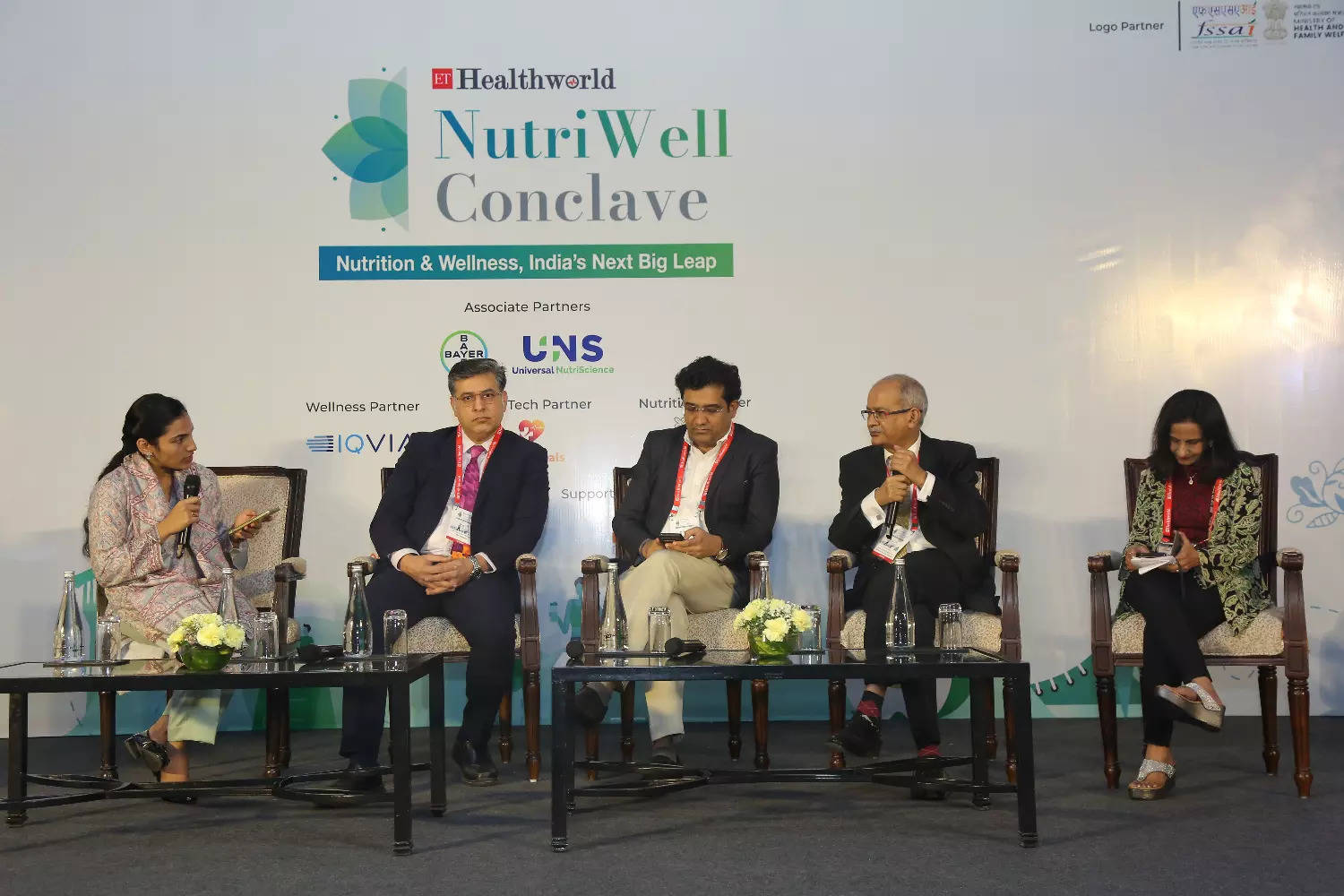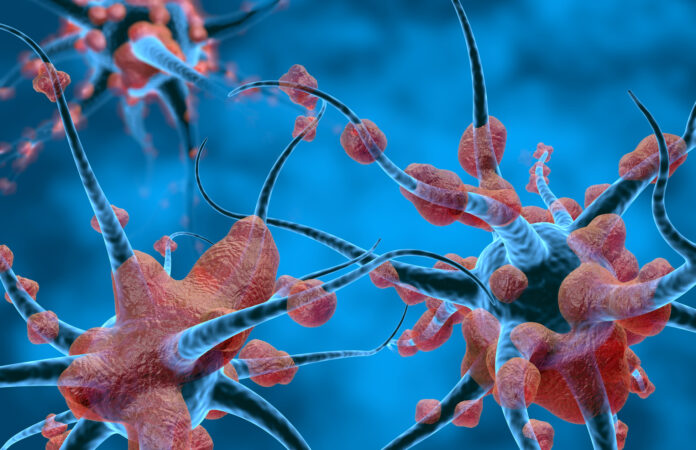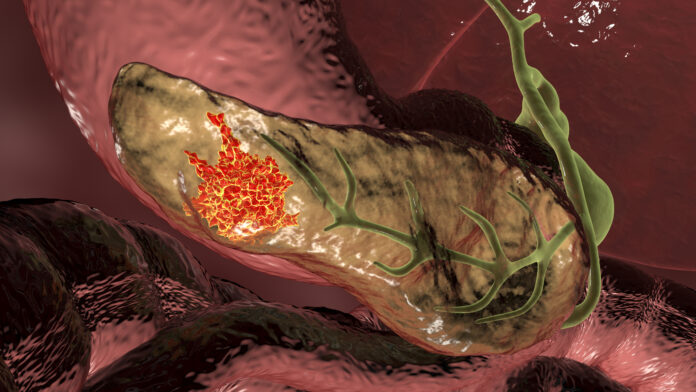
New Delhi: Amid the burgeoning crisis of Non-Communicable Diseases (NCDs) both in the world and in India, the advent of nutraceuticals offer a ray of hope with their ability to attenuate pathological mechanisms and ameliorate oxidative stress, providing both prophylactic and therapeutic efficacy through their synergistic bioactive compounds.
Nutraceuticals rising penetration in the market and flourishing business chart (global market of $400 billion) corroborate the positives of these imperatives, but issues like lack of clinical evidence, compliance concerns, regulatory issues and potential implications with medications still hinder their widespread acceptance and effective integration into mainstream healthcare.
To Discuss this pressing topic ETHealthWorld NutriWell Conclave organised a panel discussion on ‘NCD Prevalence: Bending the Curve with Nutraceuticals’ where panelists shared their views to address various challenges associated with Nutraceuticals for reducing the heightened disease burden in the country and explored potential investment opportunities to further scale-up their volume and value in the Indian market.
The expert panel comprised Dr Anuja Agarwal, Hon. Sr. Metabolic Nutrition Consultant, Division of Genetics, AIIMS; Dr Anoop Misra, Chairman, Fortis C-DOC Hospital for Diabetes & Allied Sciences; Dr Sajjan Rajpurohit, Senior Director (Medical Oncology), BLK – Max Super Speciality Hospital; Dr Ramneek Mahajan, Senior Director (Orthopaedics) & Head Joint Replacement Unit, Max Hospital and the session was moderated by Rashmi Mabiyan Kaur, Principal Correspondent at ETHealthworld.
Simplifying the alignment of nutraceuticals with drugs, Fortis C-DOC Hospital for Diabetes & Allied Sciences, Chairman, Dr Anoop Misra emphasised, that, this area (nutraceuticals) is highly attractive but the foremost challenge is that it lacks science, for instance some of the drugs which are prescribed for various metabolic diseases like diabetes, fatty liver etc. have side effects and to manage that the role of nutraceuticals emerge, but they still can’t replace mainline drugs and have to be consumed under the guidance of a physician.”
Cautioning some other challenges with respect to weight loss segment Dr Misra added, things like amla, fenugreek seeds were consumed traditionally but there is a lack of scientific evidence, secondly there are no quality control checks on their manufacturing and lastly there is scarce information on their potential side effects.”
Over the impact of nutraceuticals on the genetic predisposition of NCDs, AIIMS, Sr. Metabolic Nutrition Consultant, Division of Genetics, Dr Anuja Agarwala, underlined that “Nutraceuticals are highly bioactive and bioavailable so it can just fill the deficiency of a particular nutrient and can change the genetic expression but it can’t change the DNA sequencing, hence they can help as supplements in preventing NCDs.”
“Nutraceuticals are a hybrid between food and pharmaceuticals, so we need to understand their composition because on the contrary consuming some concentrated nutraceuticals which are marketed over-the-counter (OTC) in inappropriate dosage patterns can be toxic to the body,” Agarwala added.
Uncovering the role of nutraceuticals in musculoskeletal health, Dr Ramneek Mahajan, Senior Director (Orthopaedics) & Head Joint Replacement Unit, Max Hospital, shared that, they can be prescribed in cases of preventive care, secondly to mitigate side effects of painkillers but different products have different usage for instance a bioactive collagen peptide (type of nutraceutical) may stimulate osteoblastic activity and can reduce the osteoclastic activity.”
Commenting on the role of nutraceuticals in preventing cancer considering the anti-oxidant and anti-inflammatory properties, Dr Sajjan Rajpurohit, said “It is a proven fact that nutrition does have a role in cancer and in fact around 50 per cent of the total cancer cases are linked with long-term dietary habits. Additionally various bodies like the American Society of Clinical Oncology, the National Comprehensive Cancer Network guidelines (India) have acknowledged the role of nutrition in cancer prevention.”
“But it needs to be considered that in this aspect even a balanced diet can perform the same function and there is no single product which can ensure the prevention of cancer. For including them as part of treatment several observation studies are going on, particularly with minerals Vitamin D, calcium but it is very difficult to have a randomised control trial for various forms of nutraceuticals as part of cancer prevention,” Rajpurohit noted.
For using nutraceuticals Dr Agarwala stressed that they should be consumed only when someone is deficient in something and is indicated for a particular period to avoid their addiction.”
All experts agree that genes play the most important role in one’s diet so every individual will have identical dietary requirements and personalised nutrition varies from person to person.











![Best Weight Loss Supplements [2022-23] New Reports!](https://technologytangle.com/wp-content/uploads/2022/12/p1-1170962-1670840878.png)




